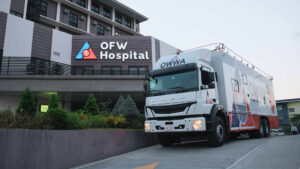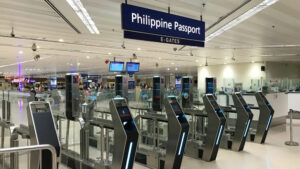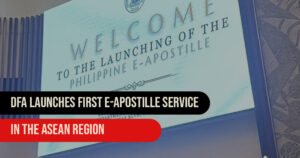The Philippine government has rejected the appeal of Libya to lift the existing ban on the deployment of Filipino workers, citing safety and security concerns and money remittances issue.
“Under the present Alert Level 2, for the safety of all parties, the deployment of new workers to Libya is still not possible,” the Department of Foreign Affairs (DFA) said in a public advisory issued over the weekend.
In the advisory, the DFA said that based on actual feedback from the remaining Filipino workers in Libya, “the required infrastructure and mechanisms for remitting their hard-earned salaries are still in the offing.”
“Our OFWs in Libya face two natural difficulties: their safety and security, and their ability to send their earnings back to the Philippines,” the foreign affairs department said.
It added that foreign currency is scarce in Libya, and in the competition for the scarce resource, “foreign workers lose out to uncontrollable economic and political forces.”
The DFA warned prospective workers to carefully scrutinize private offers for employment in Libya, saying that these offers “circumvent the safety features set up by the Philippines through so-called backdoor deployment schemes.”
Under such schemes, workers are told to travel first as tourists to other Asian cities to secure their Libyan working visa there.
“This is illegal recruitment, which is frowned upon by the Libyan government,” the DFA said.
Moreover, the foreign affairs office advised prospective applicants who wish to be employed in Libya to follow government regulations and pass through the Philippine Overseas Employment Administration (POEA).
The DFA’s advisory came following the appeal of the Libyan government for the Philippines to conduct a reevaluation of the security situation in their country and eventually lift the ban for the hiring of Filipino workers.
Libyan Embassy Charge d’ Affaires Ahmed Eddeb pointed out that the situation in Libya now has already normalized and they are in need of professional Filipino workers, particularly in the medical and oilfield sectors.
“We care about the Filipino people. We greatly value the remarkable effort extended by them, their contributions to the Libyan economy, either in the oilfield or in the humanitarian assistance they provide in hospitals and clinics,” the Libyan official told reporters.
Eddeb assured that Libya is committed to all the requirements that are necessary to pave the way for the resumption of OFW deployment.
He insisted that the situation in Libya now is much different from the situation during the uprising in 2011, and subsequently in the 2014 upheaval.
“Of course what they want is a guarantee that everything will be alright for the workers. We accepted it and we told them that we care about them,” the Libyan embassy official added.
At present, Libya is still on Alert Level 2, or the deployment of workers is in a “restriction phase.”
Under Alert Level 2, the Department of Labor and Employment only allows those workers who have existing contracts (Balik Manggagawa) to return to their host country.
Eddeb lamented that the Level 2 category prevented them from making new hires.
Before the 2011 uprising, there were an estimated 26,000 Filipino workers in Libya. Eddeb however noted some discrepancies when they compared notes with the Department of Foreign Affairs (DFA).
During the 2011 Libyan conflict, the Philippine government repatriated around 10,000 OFWs and about 4,000 others in the 2014 civil strife.
As of July 2017, there are still around 3,000 OFWs in Libya, according to the Libyan embassy estimates.




